Dozens of students, faculty and staff convened on Manchester Plaza on Friday, Feb. 10 for a speak out in response to recent events that have raised questions about the role of Islamophobia in federal policy-making and campus climate.
According to attendees, the direct impetus for the speak out stemmed from an inflammatory article, “Europe’s Islam problem and U.S. immigration policy,” written by Shannon Gilreath, a Wake Forest professor of law and women’s, gender and sexuality studies.
In late January, President Donald Trump issued an executive order effectively barring entry to the U.S. by people from seven Muslim-majority countries for 90 days and nearly all refugees for 120 days.
Gilreath uses his identity as a gay man to advocate for increased controls on the immigration of Muslims like the ones that result from the order, writing that “Islam is endemically antithetical to the wellbeing of gay people.”
Gilreath also claims that Muslim immigrants have “no intention of integrating into more enlightened Western concepts of equality and tolerance.”
Many students, faculty and staff found his central argument Islamophobic.
“The way [Gilreath] talked about Muslim people was offensive and overgeneralizing,” said sophomore Roohi Narula, an executive member of the South Asian Student Association (SASA).
She, along with other student leaders in SASA and the Muslim Student Association, orchestrated the speak out in order to create a forum for exchanging narratives and proposing solutions.
“The problem is that Muslims aren’t often humanized and it’s easy to disregard a group of people when that’s the case,” said junior Rakin Nasar. “A speak out allows individual voices and stories to be heard in a way that forces people to engage them.”
Narula echoed Nasar’s concerns. “For students most directly impacted by these policies and political atmosphere, this is not just a one-day Facebook newsfeed thing,” Narula said. “It’s changing my entire future in terms of where I can or cannot live.”
During the event, junior Varun Reddy iterated that Gilreath’s article “breaches the line into ethnocentric, xenophobic criticisms of people who are part of the Wake Forest community.”
Reddy outlined the organizers’ demands “that Dr. Gilreath issue a formal apology to members of our community, that he meet with members of the MSA and SASA communities and that action be taken to directly remedy this.”
Organizers also encouraged peers to submit bias reports.
“He’s someone who holds academic power and who we came here to learn from. We want the administration to know this is not okay,” Narula said.
Fahim Gulamali, assistant director of programming and student engagement at the Pro Humanitate Institute, was also a member of MSA as an undergraduate.
“I received a voicemail from a colleague in the Office of Student Engagement [that] morning saying ‘our office stands with you and we’re here to show up in any way you want us to.’ That’s an awesome example of allyship,” Gulamali said. “Presence matters. Administrators and faculty have the power to show up in multiple forms if you can’t be there physically you can be on online platforms or talk to students in your classroom.”
Angela Mazaris, director of the LGBTQ Center, spoke briefly but emphatically. “Shannon Gilreath and the article he wrote do not represent the views of the LGBTQ Center at all,” Mazaris said. “If you’re queer and Muslim — or straight and Muslim — you are welcome in the LGBTQ Center.”
The speak out lasted just short of an hour. Audience members were visibly moved by many of the testimonies including sophomore Yaffa Ali’s reading of original poetry.
Ali dedicated the poem to three Muslim UNC students who were murdered in 2015.
“The part of the poem where I talk about ‘wrapping the hijab a little tighter’ is actually from one of their friends,” Ali said. “She recited a poem at a service and I thought it was so powerful. In a way it was perfect that the speak out took place on the exact two year anniversary of that event.”
Ali wants her poetry to redirect hate in order to foster more discussion, and she believes the speak out was successful.
“I felt energized and realized I felt more enraged than fearful about what’s happening,” Ali said. “It was beautiful to have that moment of solidarity together.”
Gilreath’s article was removed from the Wake Forest Law School site but remains on the Washington Blade’s site where it was originally published on Jan. 19. Trump’s executive order is also being challenged in the federal court system.

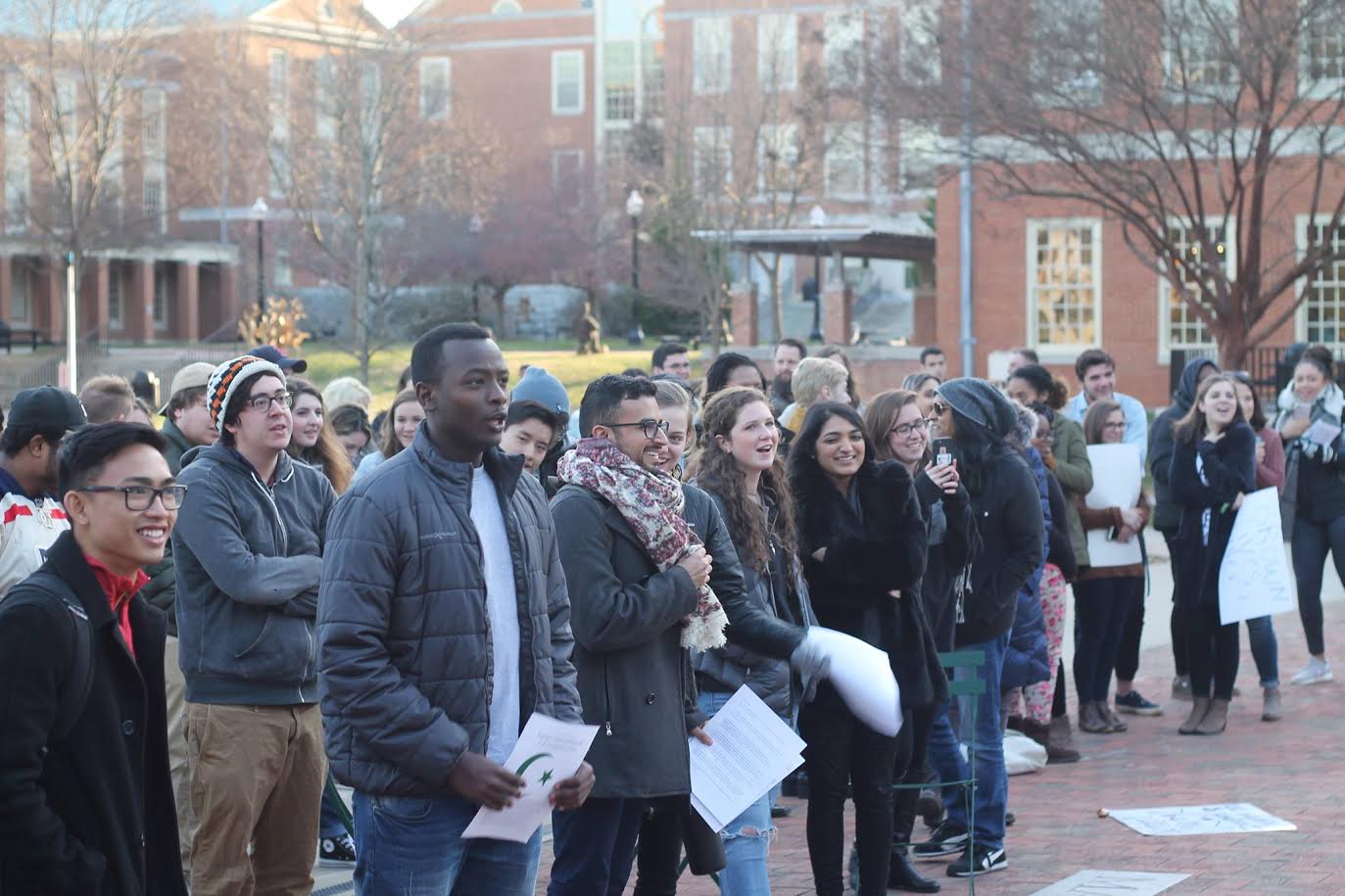
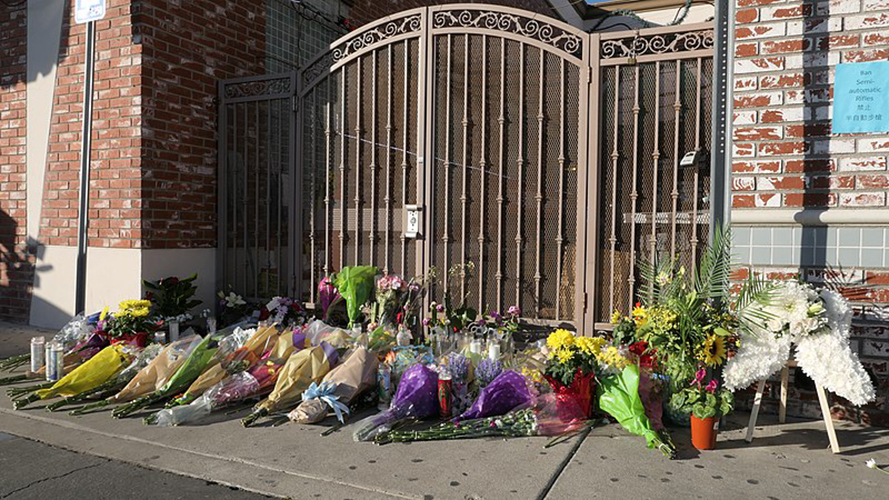
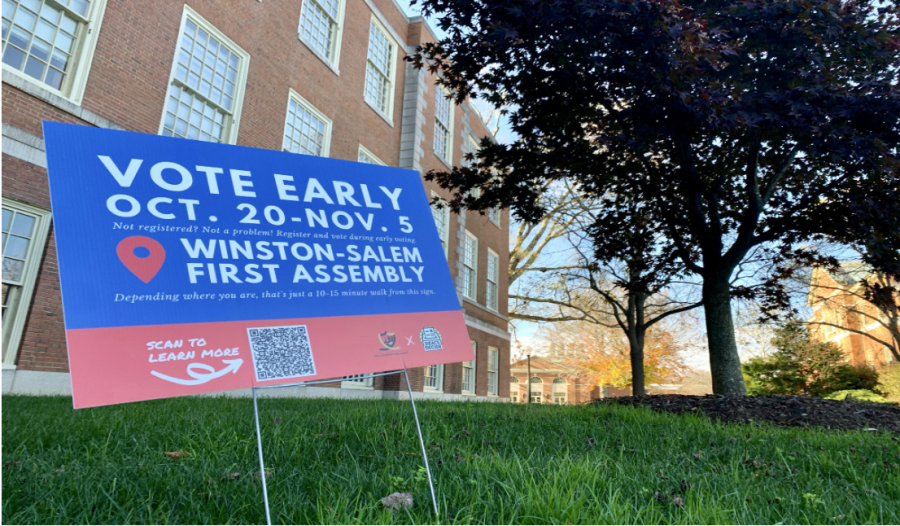
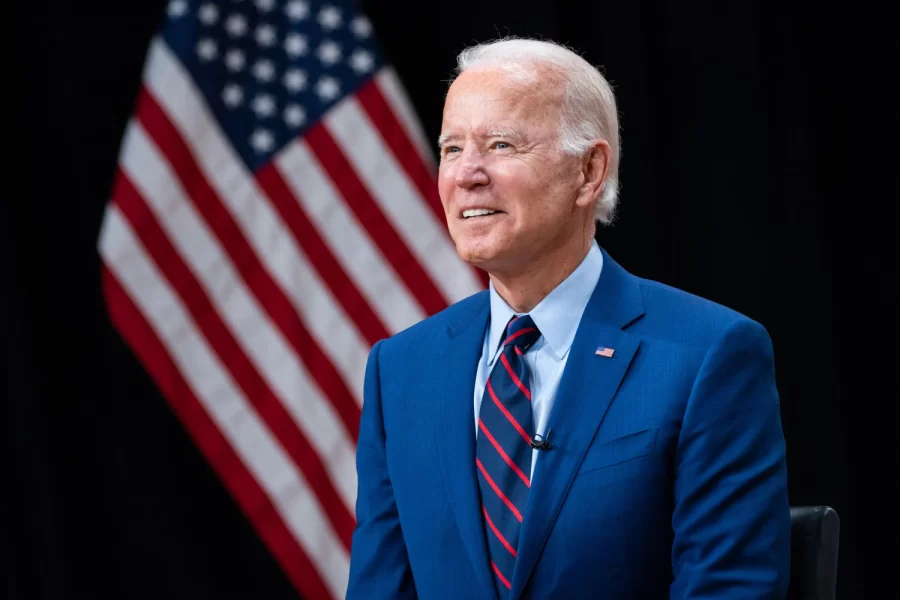
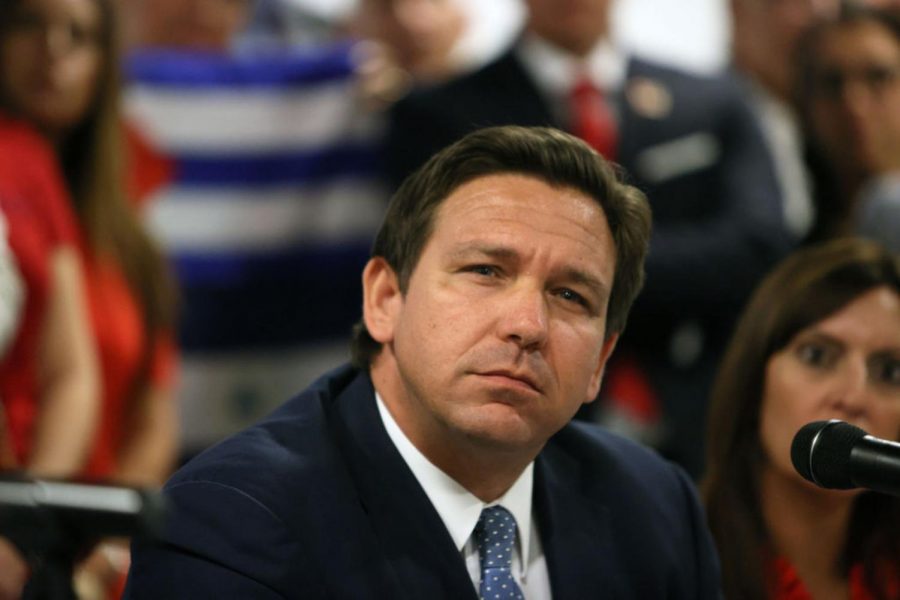
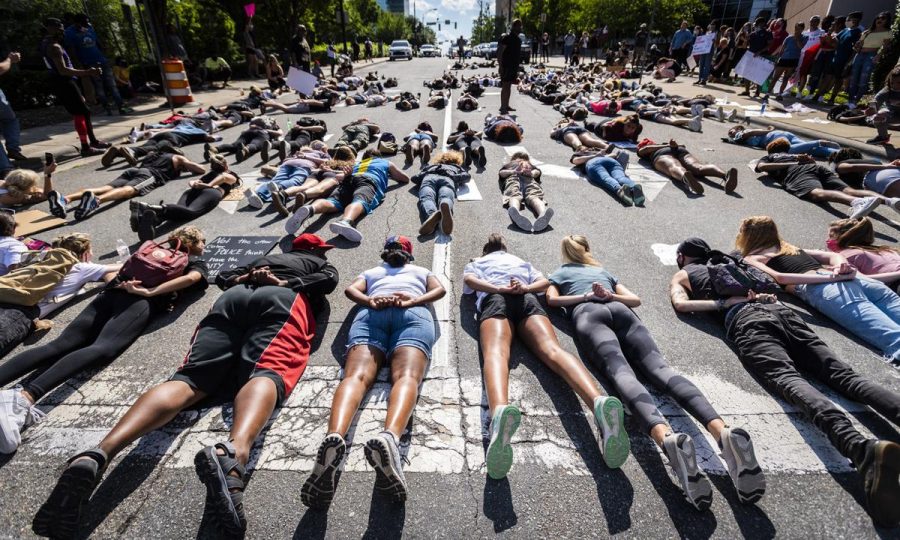
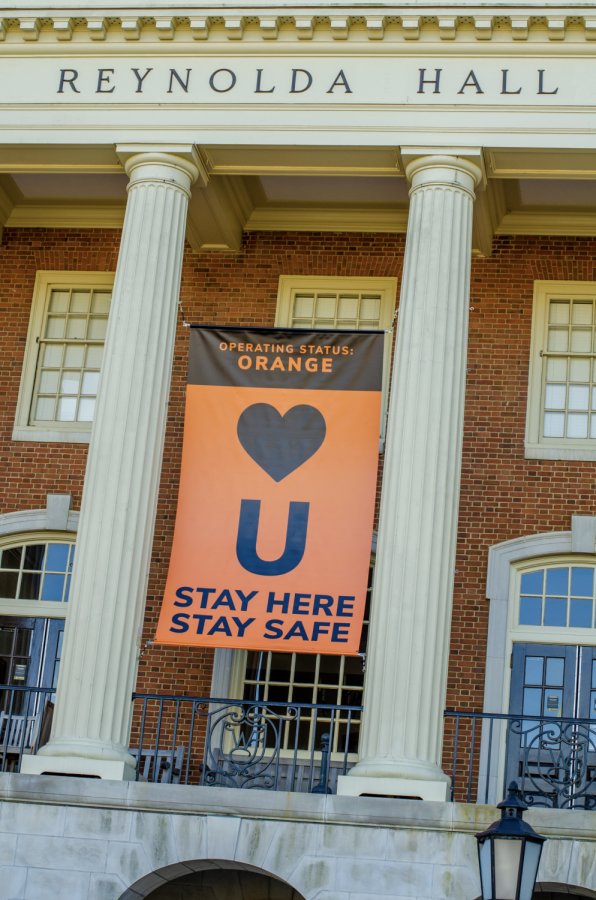






garyfouse • Feb 23, 2017 at 11:07 pm
Let’s insert some facts into this discussion. Under hudud sharia law a part of sharia that addresses “Crimes Against God”, adultery, blasphemy, apostasy and homosexual acts are punishable by death. That is not some decree that is gathering dust in some old scripture and which is ignored. It is still affirmed by the leading Islamic schools of thought, and it is still acted upon, be it hanging gays upon court sentencing in Iran or the Palestinians in Gaza throwing gays off rooftops.
It is sad that the gay lobbies pointedly ignore Islam’s treatment of gays. It is also sad that feminists ignore the treatment of women under Islam.
These are the lesser reasons why Muslim immigration to the West is problematical. We are talking about saving lives. Does this mean that all Muslims are monsters? Of course not. But we cannot ignore the problem. I encourage the readers to see what is happening in Europe.
Stickyfrog ✓justified • Feb 21, 2017 at 1:47 pm
Gilreath has a valid point. Tighter US controls on immigration or people who are from Muslim dominated countries is necessary. While we hope that immigrants and especially refugees would come here and want to be here would assimilate recent history in Europe shows otherwise.
Both Islam and Christianity have similar views on homosexuality, that is that it is an abomination and should not be allowed. However, even though many Christians still think this western civilization has been increasingly receptive while many Muslim countries have not. So it is not only religion but culture Muslims bring. Here is a map showing countries where homosexuality is illegal and in some punishable by death. https://uploads.disquscdn.com/images/5ced156e853d6e09a6e20e0ddf456af1553f0e448ac23fb6972024592a55b104.jpg
Bob • Feb 21, 2017 at 12:04 am
Never thought I’d agree with a professor of women’s, gender and sexuality studies on anything but Gilreath is right on all counts. Three years ago you could travel Central Europe (Germany, Czech Republic, Etc.) and tour guides would confidently inform tourists that the cities were absolutely safe day or night to explore. Now, thanks to German Chancellor Angela Merkel and overly generous social welfare benefits, that is no longer the case. Many Islamic “no go” zones have been established in Central Europe, the Nordic states, and even Great Britain where informal Sharia Law patrols intimidate non-Muslims until they leave, with especially violent vitriol hurled at LGBTQ citizens. Rape in Sweden is up 1,400%! And parts of France have been in flames for weeks with “refugee” rioting.
So what is it about the “theory” of intersectionality* that convinces otherwise educated and reasonable people to advocate on behalf of their most violent oppressors? Brainwashing? Does intersectionality only attract idiots? Seriously, what blinds its adherents to reality?
*Intersectionality is a component belief of critical theory, which has more in common with religion than science. Hence the quotation marks.